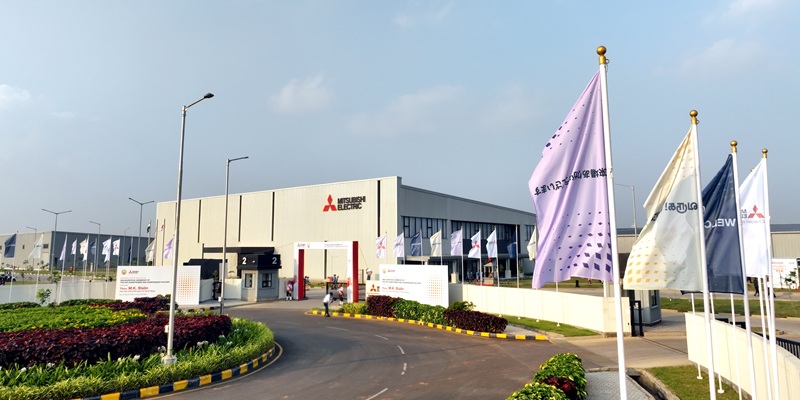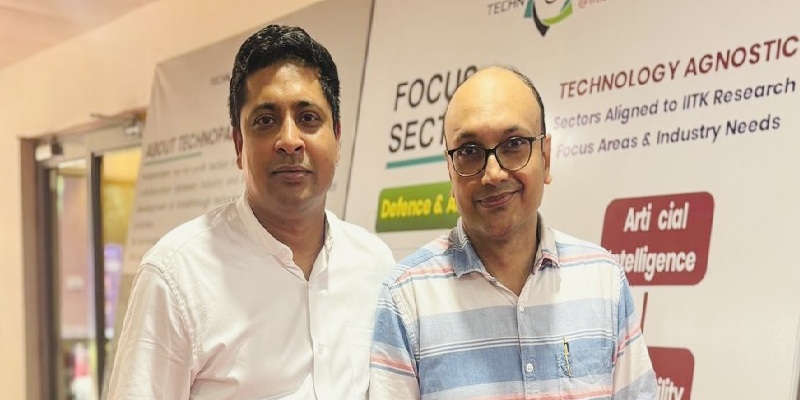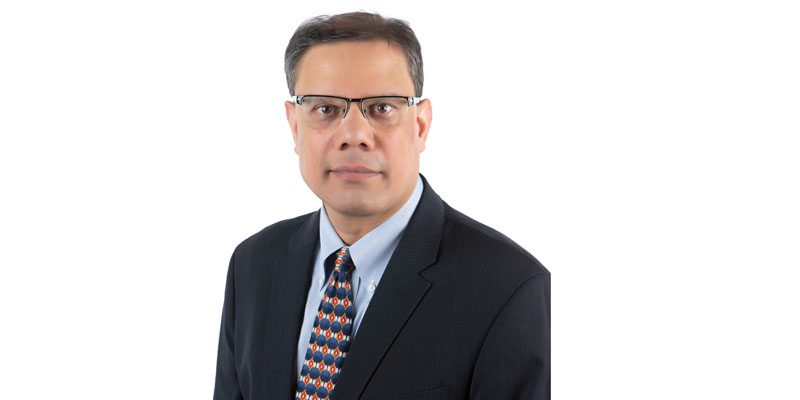Schedule a Call Back
Indian Manufacturing Subsidiary Leads US Head Office
 Technical Articles
Technical Articles- Jan 16,13

In the early 1990s, US precision engineering firm Turbocam Inc., was being urged by a customer in India to take advantage of new, more relaxed FDI legislation, and open a factory in the country. The reasoning was that the Indian company would have access to the high-quality parts it needed, but would no longer have to pay with foreign currency. In exchange, Turbocam could gain a foothold in one of the world's fastest growing economies. It was a long-term investment with a degree of risk, but the customer assured Turbocam he would keep the new factory busy.
Subsidiaries are usually set-up in the image of the parent company. Turbocam Inc., is a successful and highly respected organisation, serving some of the biggest and best-known names in the aerospace, automotive, industrial, and marine sectors with bladed production parts for turbo machinery. When it established Turbocam Pvt Ltd, the factory was equipped with a make of CNC machine tools the group's senior managers knew and trusted.

"Back in the early days, we were very much guided by the head-office in the US," says Savio Carvalho, Director at Goa-based Turbocam India Pvt Ltd. "This included our choice of capital equipment. However, I think a turning point came in 2001, when we got a large order through Turbocam Europe for 5-axis insulator segments for the Large Hadron Collider, in Switzerland. We eventually made about 60,000 parts, after which I think we 'grew-up' in the eyes of our American principal. They saw that we could do a lot here."
The order from CERN (the European Organisation for Nuclear Research) was worth over $1 million. Once the final parts were delivered, the Indian subsidiary found itself with the resources it needed for better and newer CNC machines.
"We were already in contact with the local Haas distributor, who told us about a local company using a Haas machine - a VF-3," notes Mr Carvalho. "We went along and had a look at it. We asked the owner his opinion of the machine, and he was very enthusiastic. Personally, I was impressed with the spindle power and the control. I compared it to other machines, I talked to other people, and the Haas seemed like a very a good price for a machine with its features."

In 2004, the company bought a VF-2SS: the first of what would eventually turn out to be many Haas CNC machine tools. But, Mr Carvalho remembers, it was hardly used for the first year. "Most of the work we were doing around then was 5-axis. We didn't really have the work for the 4-axis Haas," he says, "but we took the opportunity to learn how to get the most out of the machine, so we used the time well." Before long, Turbocam Pvt Ltd was using the Haas machine to rough-cut the turbine blades, and then finished them on their 5-axis machines. "We used the Haas to rough in two setups," says Mr Carvalho, "and as a result, our roughing times decreased substantially. We saw that the Haas machine was fast and reliable; it passed that test, but we really needed to start using it to finish machine the blades."
By coincidence, some of the orders the company received at that time were for less complex turbine blades that could be machined using just four axes. From this point onwards, the Haas was a fully-fledged production machine. "In 2005 we cut some test parts for Cummings," says Mr Carvalho. "A little later, they gave us the green light, saying: 'We are planning to go into production in a year, and want you to produce 10,000 parts per month.' We needed to tool up, get some more machines quickly. But, I'll be honest, I really can't say that everyone voted to go with the Haas machines at that time."

By early 2006, the company still hadn't decided what machine tool to buy. Turbocam India was convinced it should invest in the Haas machines, but the head office in the US had slightly different ideas. To build his case, Mr Carvalho travelled with Onno Weststrate, from Turbocam Netherlands to Hannover to visit the Haas Automation Europe booth at EMO, the biennial European manufacturing show. From there, they flew on to the US headquarters in New Hampshire, where he met with his colleagues and presented his argument in favour of Haas machines. They were not entirely convinced.
"I told Terrence Miranda, Managing Director of Haas India, that he had to convince the American's to buy the Haas machines," Mr Carvalho says. "So, he arranged with Haas Inc., to fly our technical director, Elliot Wilkins and Keith Bainbridge our main machinist, to the factory in Oxnard, California." Whatever their reservations, the visit changed their minds. The company management returned to New Hampshire with a very different point-of-view.
"They were really impressed with how the factory was set-up. They saw how Haas builds its machines; they saw how many Haas machines the company uses on its own production line; they were impressed with the spares and inventory system, and the general philosophy at the company. We resubmitted our proposal to the head office, and they decided to give us the go-ahead. We placed an order for eight Haas machines - two lathes and six mills. Incredibly, our American office promptly followed suit and also bought eight Haas machines!"

A few years later and Turbocam owned sixteen Haas mills and four lathes, all busy making up to 14,000 of the Cummings turbine parts every month. "Originally, we turned this part from bar," Mr Carvalho explains. "But it wasn't very cost effective, and created a lot of waste. Now, we ask the customer to manufacture the forgings and send us the components once they are rough turned, so we can do the final turning. We check every single component - the guys on the lathe do this - before we move it up to the milling process. Finally, every one finished component in eleven is checked 100% in our air-conditioned CMM room."
Quality control is vitally important. Turbocam's customers are automotive companies like Chrysler, Volvo, and other well-known names. "They want to be sure that every part can go straight to the production line," says Mr Carvalho, "so our machining processes need to be robust and stay within the CPKs, the control parameters."
At the time of this writing, the company is expecting another delivery from Haas India. By April 2011, it will have 23 Haas mills: 22 VF-2SS and 1 VF-3SS. Plus, of course, the five Haas lathes. In a typical week, the machines are switched on at 6.30 am Monday morning and switched off at 10.30 pm Saturday. Sundays are set aside for preventive maintenance, and a well-earned break for the company's 105 employees.
(Matt Bailey - International Press Relations for Haas Automation Inc., MBMC - International Press and Publicity. Tel: +44 (0)1603 283 601. Email: press@mbmc-uk.com)
Related Products

Amusement Park Equipment- White Water Ride
SICCO Engineering Works offers a amusement park equipment- white water ride.
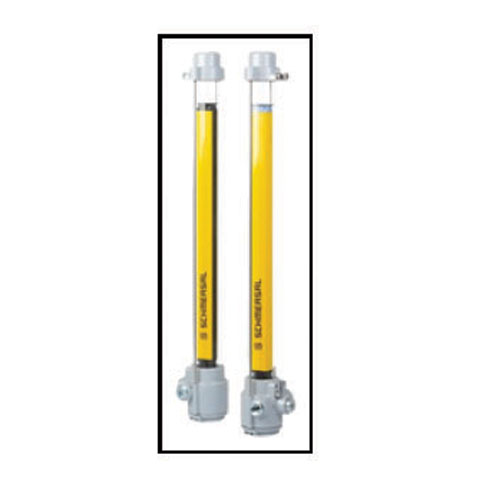
Safe Signal Processing
Insys Electrical & Controls offers a wide range of
safe signal processing.
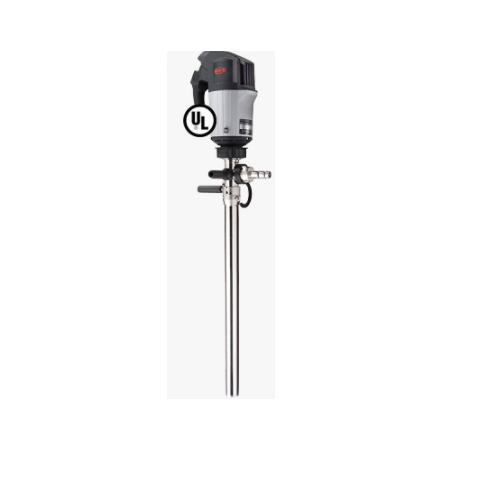
Nylon Coated Roller
Jekmin Industries offers a wide range of
nylon coated roller.





